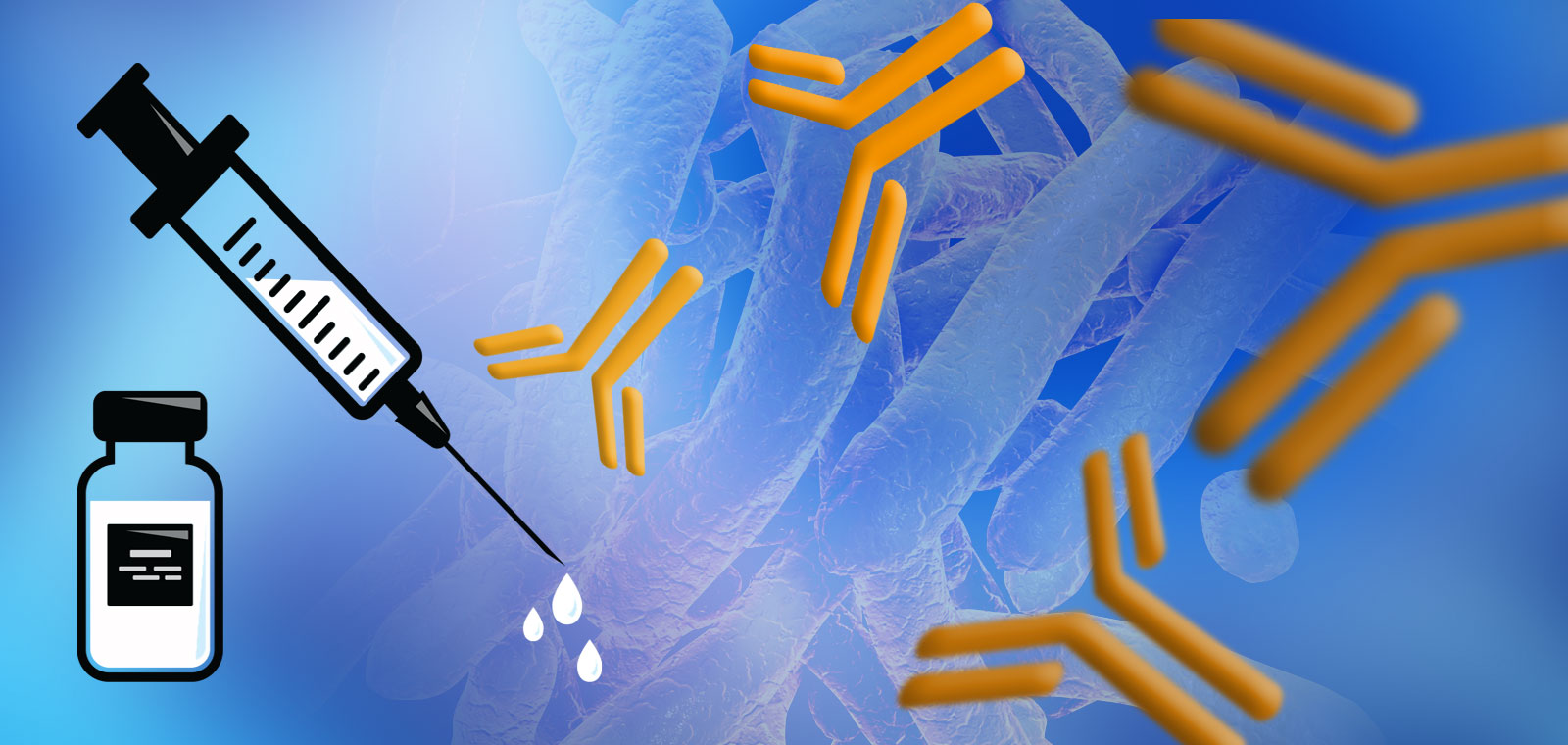
In previous reports, we have shown that administering BCG, the current TB vaccine, via the airways protects rhesus monkeys against TB. Besides an effect on TB, BCG has an even broader beneficial effect on other infections. Because of this so-called heterologous effect of the TB vaccine, children, and adults, are also better protected against all kinds of respiratory tract infections and blood poisoning.
How does a vaccine work – part 1
A vaccine aims to protect you against one type of pathogen. An influenza vaccine protects you against the flu and not against measles. A lot of vaccines that are now used against known infectious diseases, consist of a weakened version of the pathogen, therefore you build up resistance (immunity) against the disease but you don’t fall ill. If you get infected with the pathogen against which you have been vaccinated, the immune system can react faster against the pathogen, so it doesn’t get the chance of making you ill. Thus, a vaccine makes sure that your immune system responds faster, and is specific to this disease. This is what we call “the memory” of the immune system. So with a vaccine, you actually switch on your memory against a certain disease. The part of the immune system that is responsible for this “specific immunity”, is called the adaptive immune system.
How does a vaccine work – part 2
It has been known for quite some time that certain vaccines, especially the live attenuated vaccines such as the TB vaccine, the measles vaccine, and the polio vaccine, can protect against other infectious diseases as well and not only against the disease you have been vaccinated for. BCG, currently the only TB vaccine and given to most children in the world at birth, protects not only against TB. It also protects against respiratory tract infections caused by other pathogens than the TB bacillus. This type of immunity is called “heterologous immunity”. We know that this protection is regulated by the so-called innate immune system. Even though this part of the immune system is less specific, it certainly responds faster when you are infected with a pathogen. So, the innate immune system has a type of memory as well. This is also called the “trained” memory; to avoid confusion with the memory of the adaptive immune system.
What we have discovered
A standard BCG vaccination is given via the skin (intradermal). In earlier reports, we have shown that administering the current TB vaccine BCG via the airways (mucosal) results in better protection against TB in rhesus monkeys. In the current study that has now been published, we show that BCG administered via the airways also results in an improved trained immunity of cells of the innate immune system in the blood and bone marrow of rhesus monkeys. Because this heterologous immunity provides better protection against respiratory tract infections, researchers are also testing the TB vaccine against other respiratory tract infections such as Covid-19.
A new TB vaccine
Next to the existing TB vaccine, we have also tested a new TB vaccine. In contrast to BCG, which has been created by using an adapted TB bacillus from cows, this new vaccine is created using a human TB bacillus (MTBVAC). Because MTBVAC is much more similar to the human TB bacillus, it showed a better immune response against TB. We have determined that just like the BCG vaccine, administering the MTBVAC vaccine via the airways also results in an improved trained immunity of the innate immune system compared to the standard skin-administration of MTBVAC. Whether mucosal vaccine administering provides an improved “trained immunity” in general, is an interesting hypothesis that has to be explored further.

